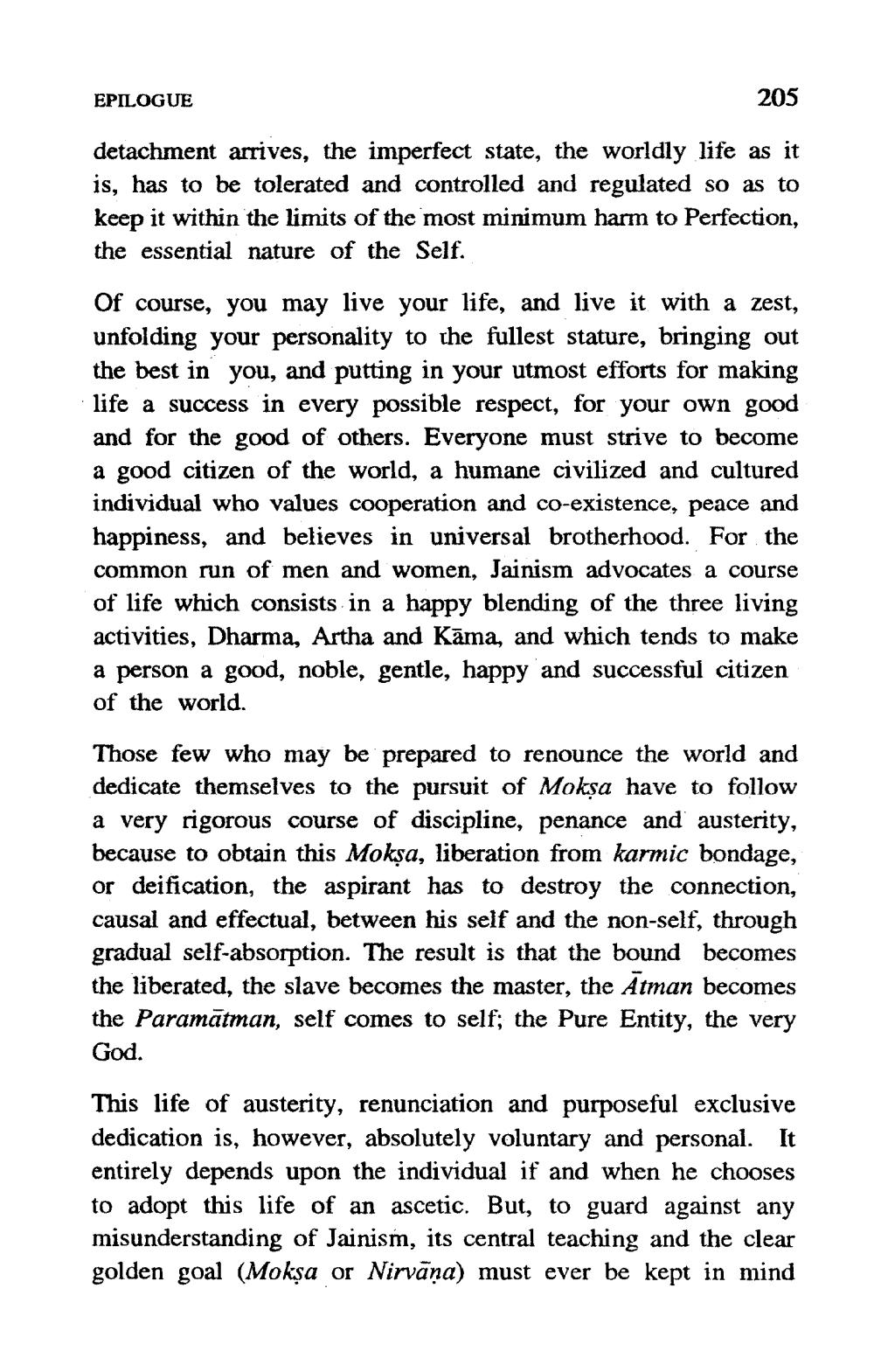________________
EPILOGUE
205
detachment arrives, the imperfect state, the worldly life as it is, has to be tolerated and controlled and regulated so as to keep it within the limits of the most minimum harm to Perfection, the essential nature of the Self.
Of course, you may live your life, and live it with a zest, unfolding your personality to the fullest stature, bringing out the best in you, and putting in your utmost efforts for making life a success in every possible respect, for your own good and for the good of others. Everyone must strive to become a good citizen of the world, a humane civilized and cultured individual who values cooperation and co-existence, peace and happiness, and believes in universal brotherhood. For the common run of men and women, Jainism advocates a course of life which consists in a happy blending of the three living activities, Dharma, Artha and Kāma, and which tends to make a person a good, noble, gentle, happy and successful citizen of the world.
Those few who may be prepared to renounce the world and dedicate themselves to the pursuit of Moksa have to follow a very rigorous course of discipline, penance and austerity, because to obtain this Mokşa, liberation from karmic bondage, or deification, the aspirant has to destroy the connection, causal and effectual, between his self and the non-self, through gradual self-absorption. The result is that the bound becomes the liberated, the slave becomes the master, the Atman becomes the Paramātman, self comes to self; the Pure Entity, the very God.
This life of austerity, renunciation and purposeful exclusive dedication is, however, absolutely voluntary and personal. It entirely depends upon the individual if and when he chooses to adopt this life of an ascetic. But, to guard against any misunderstanding of Jainism, its central teaching and the clear golden goal (Mokşa or Nirvāņa) must ever be kept in mind




